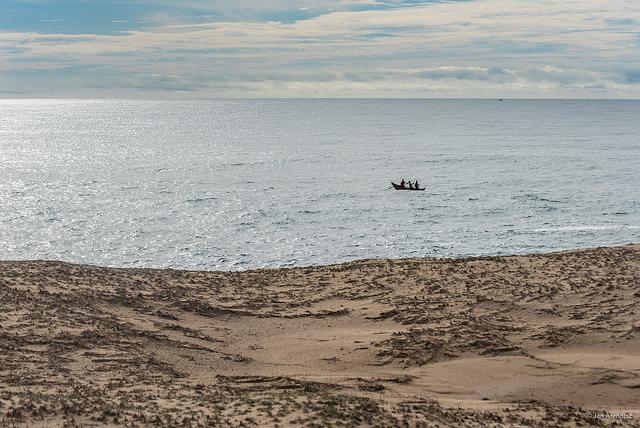Australia’s fisheries diplomacy: about more than fish
Posted By Marcus Haward and Anthony Bergin on March 15, 2016 @ 10:00

Fisheries are significant renewable resources for Indian Ocean and Pacific Island countries. They underpin food supplies, maintain livelihoods and assist economic growth.
Our regional fisheries engagement in the Indo–Pacific should be viewed as a whole-of-government exercise: we’re well placed to help in capacity building, fisheries science, maritime surveillance and enforcement, and facilitating regional strategic discussions about sustainable returns from the use of fisheries resources.
Fisheries policy links our security, trade, foreign policy and development cooperation activities. Continuing to build on our strengths in fisheries management will enhance the performance of regional fisheries bodies and their members.
At the same time, understanding key external fisheries challenges will guide effective regional engagement and enhance our broader political and security interests.
These challenges include overfishing, both of valuable offshore tuna fisheries and inshore food fisheries, illegal, unreported and unregulated (IUU) fishing, and the impacts of climate variability and change on fish stocks.
The stress living marine resources are placed under will impact food security and economic development in the Indo–Pacific, with likely effects on political stability.
While it’s not well recognised, fisheries engagement in the Indo–Pacific is a key component of our economic, diplomatic and security investments.
We have some useful assets, especially fisheries science and management expertise, that can be deployed to help increase regional capacity.
While our engagement with regional fisheries management organisations is important, our range of strong bilateral relationships are an effective base to strengthen fisheries capacity-building.
Working with Indonesia, for example, to address IUU fishing and to manage tuna stocks, including of the valuable southern bluefin tuna, will continue to be important.
It’s time we lifted our fisheries engagement with China, which has the largest distant water fishing fleet in the world, the operations of which are rapidly expanding. There are growing concerns [1] about the low level of regulation of China’s fleets.
Our engagement with China on fishery matters should include exchange of technical knowledge, skills and best practices to support better fisheries management. We should work to include fisheries matters on the agenda of the annual Australia–China High-Level Dialogue.
Our agenda in regional fisheries should look after Australian fishing interests, and that’ll come only if we strengthen regional fisheries standards. That’s particularly true in the central and western Pacific where our contribution to regional fisheries organisations will be the primary vehicle through which we can support sustainable fisheries.
While Australia has had less direct fishing interests in the Indian Ocean, we’ve been a strong contributor to the Indian Ocean Rim Association (IORA), the only pan-regional body in the Indian Ocean.
We’ve given modest support to the Fisheries Support Unit in Oman, one of IORA’s flagship projects, and a potential point of coordination for IORA members. We should encourage IORA’s fisheries work to be better integrated into the work of other regional fisheries bodies, such as the Indian Ocean Tuna Commission.
Our fishing industry operates in the Southern Ocean, catching valuable Patagonian toothfish and mackerel icefish. Australian fishing operators in the Southern Ocean are world leaders in sustainable harvesting. As yet, there’s no Australian vessels fishing for krill—a key species in the Southern Ocean, and the world’s largest underexploited marine resource stock. With China expanding its krill operations down South, we’ll need to increase our efforts in order to inform decisions regarding the acceptable harvest levels. Continuing to build on our strengths in fisheries management in the Indo–Pacific should become a more important element of our regional engagement strategy.
We’ve got clear interests in the sustainable use of fish stocks for regional states’ food and livelihood security and to ensure healthy ocean ecosystems. Sustainable fisheries are important for regional political stability: it’s not just about fish.
Article printed from The Strategist: https://aspistrategist.ru
URL to article: /australias-fisheries-diplomacy-about-more-than-fish/
URLs in this post:
[1] growing concerns: https://www.wilsoncenter.org/sites/default/files/Fishing%20for%20Answers_0.pdf
Click here to print.